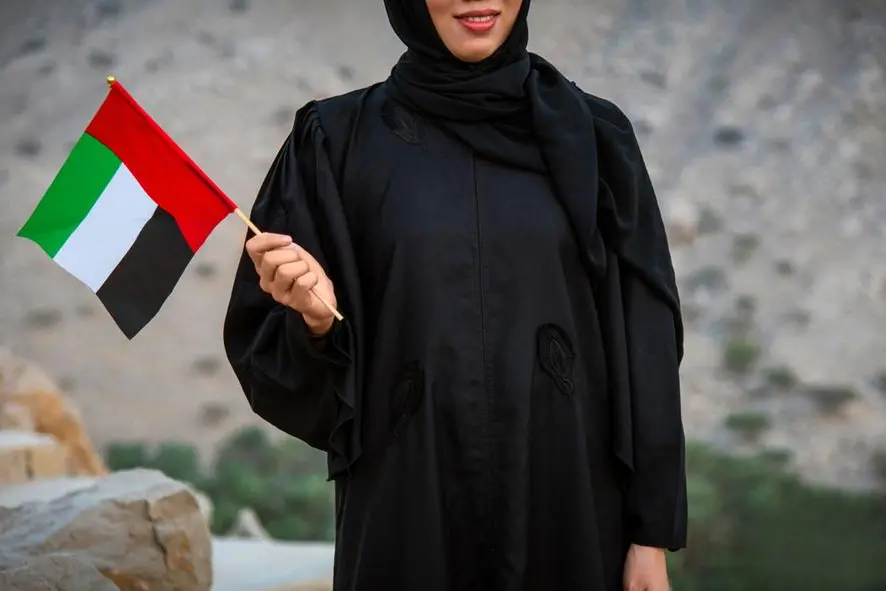PHOTO
The Emirates unified on December 2, 1971. An expat, who has been in Dubai since 1958, learned about the unification only after a month.
“I learned about Dubai becoming part of a country on January 12, 1972, when I got stamped for my visa,” said Mohammed Farooq Tahir, who arrived in Dubai as a four-year-old.
“Before learning about the unification, every emirate was a different country for us. To move to Abu Dhabi, we had to carry our passports and get it stamped. Similarly, to go to Sharjah, there was a check post to be crossed,” said Tahir.
“We were happy that we didn’t require a passport to go Abu Dhabi, where my brother stayed,” recollected Tahir, about the long journeys to Abu Dhabi during the weekend.
Journey of a lifetime
Holding his grandmother's hand, four-year-old Tahir boarded the ship bound to Dubai via Muscat, bidding farewell to the shores of Karachi. “The journey involved layovers in Muscat before reaching Dubai, which was then a Trucial state, said Tahir.
Upon arrival, the ship was anchored away from the shore, and “smaller boats were deployed to transport us to a new land, which we call it home,”
Vivid childhood memories
“I have a clear vision of the life I spent here since my arrival. After we reached the shore, it was in minutes, I saw my father, who was at the port to pick us up,” said Tahir.
The family arrived at the home, which was constructed in mud and coral stones, at Sikkat Al Khair in Deira, and they had an established business near their residence. His growing years were in UAE , where he attended an Arabic school and then moved to a Pakistani School, “which was constructed by the Pakistani Association years later in 1965,” he explained.
“I still remember vividly that the school was atop a printing press,” Tahir recalled.
However, due to his age, he couldn’t continue with his education and helped his father and grandfather in their business.
A master in typewriter repairing
Tahir’s grandfather owned a typewriter repairing store, which was then taken over by his father. “I used to play with the typewriter parts in my childhood and I eventually mastered the art of repair, which shaped the course of my life,” said Tahir.
His father was a typewriter mechanic and held a distinguished position in a town with only a handful of such craftsmen. The workshop was named American Expert Typewriter Repairing Works, and “my father was addressed as American because of the shops name,” he said.
“We catered to the Dubai customs, repairing typewriters. We had a contract there, and we received our payment, and Sheikh Rashid’s sign was on that cheque,” reminisced Tahir.
Encountering Sheikh Rashid
Sheikh Rashid, the ruler at the time, left an indelible mark on young Tahir. . Although their first meeting was a bit scary, it turned into a brief connection. “I was playing with a ball striking at the wall. I encountered the ruler with a bodyguard, who had a gun in his hand. He stared at me and then smiled at me. I was scared in the beginning, but his smile was so magical,” said Tahir adding that he clearly remember that instance.
Working for Dubai Defence
Tahir worked for Dubai Defence as a mechanic for printers for 16 years from 1980 to 1996. “The business of repairing printers was not much. A few of them from the defence arrived in our shop to hire for a vacancy. After sharing this with my wife, she told me that the job was suitable for me. When I saw the typewriters there, it was the same typewriters we repaired, Olympia and Adler,” said Tahir.
The advent of computers and printers
"Dubai changed a lot after 1995." Computers and printers became popular, and people didn't use typewriters much any more. “The business started declining after computers and printers were entering the markets. My skills were of no use and I wanted to sustain,” said Tahir.
The advent of new technologies in the market made Tahir switch to fixing electrical and electronic pieces of equipment in cars. He went from fixing old typewriters to working with the technology of the future.
He started an electrical, and electronics auto repair workshop in Umm Ramool after leaving Dubai Defence.
A humble living
Tahir's family witnessed Dubai's transformation first-hand. From wooden cottages in Al Qusais, with no electricity, to a building in Qusais. “It was the exact journey how Dubai evolved,” said Tahir.
“I could never imagine that Dubai would have these world-class structures, going with the experience of living in wooden homes. Earlier, it used to rain once in three years, but very, very heavily,” he recollected.
The typewriter repair shop may have evolved into another business establishment in Deira, but Tahir's memories remain etched in the foundation of Dubai's and the UAE’s history.
Copyright © 2022 Khaleej Times. All Rights Reserved. Provided by SyndiGate Media Inc. (Syndigate.info).





















